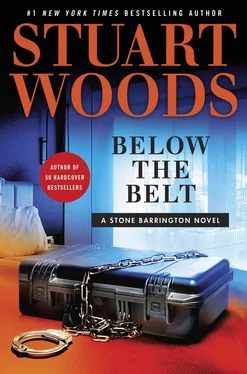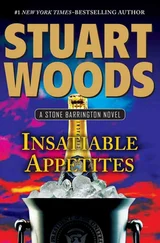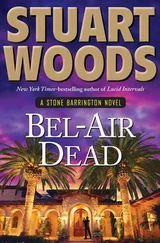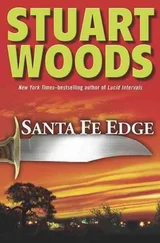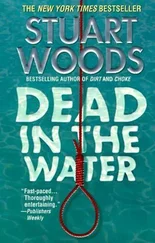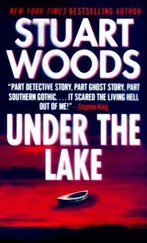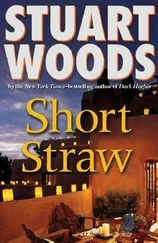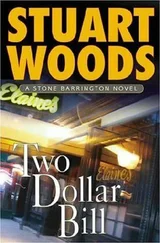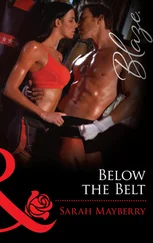“He’s spent more time on the design and building of this yacht the past two years,” his wife said, “than on any sort of productive work.”
“Darling, I’m surprised you find all this unproductive, and anyway, you spent just as much time on the interiors as I spent on the rest.”
“Where did you have her built?” Stone asked.
“I bought a little boatyard on the bay,” he replied, “built a larger shed, and hired a yacht designer, a manager, and a workforce of thirty craftsmen. I find you get more attention from the builders if you’re not competing with other people’s yachts. We built Breeze and the two launches in less than two years — record time.”
“Will you keep the yard?” the editor asked.
“I will, along with a staff to maintain the yacht. I sent the others off with a nice bonus, and they have all already found work in other yards. Breeze looks good on their résumés.”
“That’s a brilliant way to build a yacht,” Stone said.
“Especially if you consider that I paid about the same as if I’d hired a top yard to do it. As it was, the company I set up made a very nice profit, and we may take on other yachts to maintain. Of course, if I’d built a larger vessel, I’d have had to go to Abeking & Rasmussen in Germany or Palmer Johnson in Wisconsin or some other brilliant builder thousands of miles away. Just think what I saved on jet fuel by doing it in-house, as it were.”
Everybody laughed.
A steward came into the room with a sheet of paper on a silver tray and offered it to St. Clair. “Excuse me, sir, but I thought you’d like to know.”
St. Clair picked up the paper and read it, while the others chatted. He tapped on a wineglass with a fingernail, and everybody got quiet.
“Ladies and gentlemen,” he said, “I’m sorry to interrupt your dinner, but it’s my sad duty to inform you that former President Joseph Adams died suddenly this afternoon at his home in Santa Fe. He and Sue were due at their home on Mount Desert Island later this week for the summer. We had planned to call in and see them.”
Everyone seemed locked in a stunned silence.
St. Clair raised his glass: “I give you a great man — Joe Adams.”
Everyone raised his glass and drank.
“I knew him well,” St. Clair said, “and I’ve never known a better human being.”
The others exchanged reminiscences, then St. Clair turned toward Stone.
“You’re very quiet, Stone. Did you know Joe Adams in Santa Fe?”
“We met at the Democratic Convention in Los Angeles some years back and spent a riotous evening together in a skybox belonging to a mutual friend. I think we had more fun than any of the delegates.”
“It’s a pity he got to serve only a few months as President, after his predecessor died,” Saltonstall said.
“He and Sue came to Maine every summer,” St. Clair said. “Joe loved it here.”
The rest of the evening was quieter.
After dinner they adjourned to the yacht’s saloon for brandy and coffee and watched the TV coverage of Joe Adams’s death for a while. It was nearly midnight before the group showed signs of breaking up. Stone and Holly thanked their hosts profusely and rose to go.
“If you hang around Islesboro a little longer, perhaps we’ll see you again,” St. Clair said. “We’ll be cruising for a couple of weeks. Perhaps you could join us for a few days. We’re not fully occupied aboard.”
“That would be delightful,” Stone said, “if we’re able to stay longer.” They exchanged cards, and Stone and Holly boarded the launch for the return trip to the dock.
“What did you think of Christian St. Clair?” Holly asked as they were walking back to the house.
“I liked him,” Stone replied. “He’s smart, unpretentious, and he didn’t talk about business or, very much, about politics. He’d rather talk about his boat, and I liked that about him. How about you?”
“He was all right, I suppose. I’m uncomfortable in the presence of that kind of money.”
“Why?”
“I don’t know, I suppose it’s because a lot of the wealthiest people seem to use it badly, or to promote self-serving political causes, or they’re greedy for even more.”
“Christian seemed very relaxed and comfortable in his skin, and I like it that the man, at the most productive time of his life, would spend two years building his dream yacht, overseeing it himself. He could have just written a huge check to a big yard, but he didn’t.”
“Maybe he’s just obsessive-compulsive,” Holly said.
“But, unlike you, not about his work.”
As they arrived at the back porch of the house, Stone suddenly realized that someone was sitting in a rocker on the porch.
“Evening,” Ed Rawls said, rising.
“Why, Ed,” Stone said. “I’m sorry I didn’t know you were coming. We were out to dinner.”
“So I saw.”
“Come in and have a drink.”
Rawls followed them into the house and accepted a brandy. “Have you heard about Joe Adams?”
“Yes, we watched some of the coverage on TV after dinner.”
“This means we have a whole new timetable.”
“Funny, I didn’t know we had an old timetable.”
“Joe doesn’t have to be protected anymore, though Sue might need to be. After all, she knows about the strong case.”
“As a former first lady, Sue will continue to be protected by the Secret Service,” Holly said.
“As Joe was? Remember, somebody walked up to him in his own garden in Santa Fe. If the Secret Service had protected him, we might not be where we are today.”
“And where the hell are we, Ed?” Stone asked, trying not to sound exasperated.
“In trouble,” Rawls replied. “While you were supping with Christian St. Clair, two men examined your house rather slowly. I kept in the shadows, so they didn’t see me, which was good because I wouldn’t have wanted to leave a couple of corpses on your back porch.”
“What did they look like?” Stone asked.
“Respectable, but out of place. They were wearing suits and ties.”
“You make that sound sinister, Ed.”
“Don’t you find it so? On Islesboro? They would have been the only people dressed that way on the entire island — except for you, of course, in your monkey suit.”
“My dinner host specified the dress for the evening,” Stone pointed out.
“Ah, your dinner host, Mr. St. Clair.”
“How did you know about him?”
“Well, he’s been building that yacht around here for the last couple of years. Folks couldn’t wait to see it.”
“What do you have against Christian St. Clair?” Stone asked.
“I’m suspicious of men who have their own police forces.”
“What do you mean?”
“I mean, he has more security people working for him than any police force between here and Portland — maybe between here and Boston.”
“Perhaps he just has a lot to protect — he owns a lot of things.”
“Tell, me, Stone, how did he react to the news of Joe Adams’s death?”
“Sadly. We all did.”
“And who were your dinner companions?”
“Whitney Saltonstall and the publisher of Vanity Fair and an editor of the New York Times .”
“Covering all his bases, wasn’t he?”
“Ed, you’re becoming tiresome. Either tell me what you’re talking about, or just stick to your brandy.”
“Just think about how much influence was gathered aboard St. Clair’s yacht,” Ed said. “ Vanity Fair , for social coverage; the Times , for news and influence; and Whit Saltonstall, for power in Washington.”
“I forgot to mention the national security advisor.”
Читать дальше
